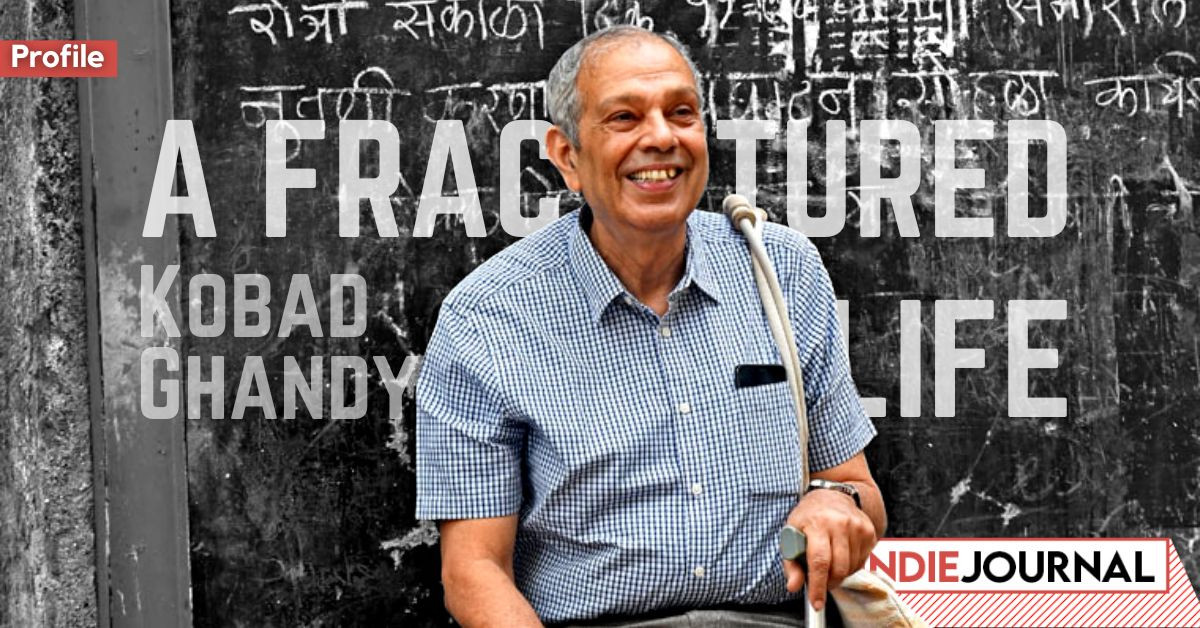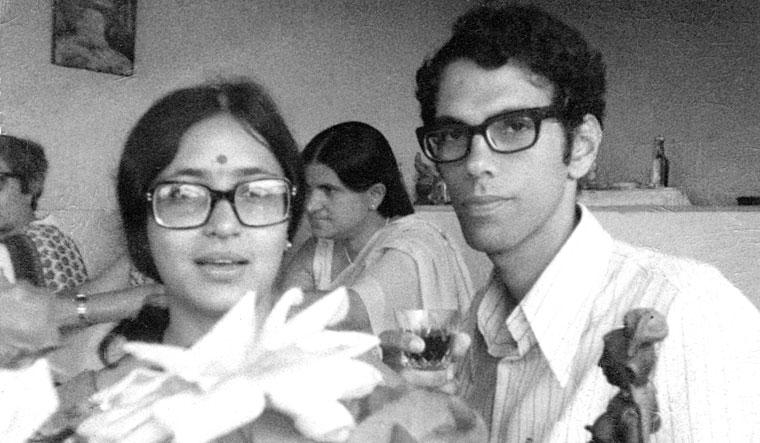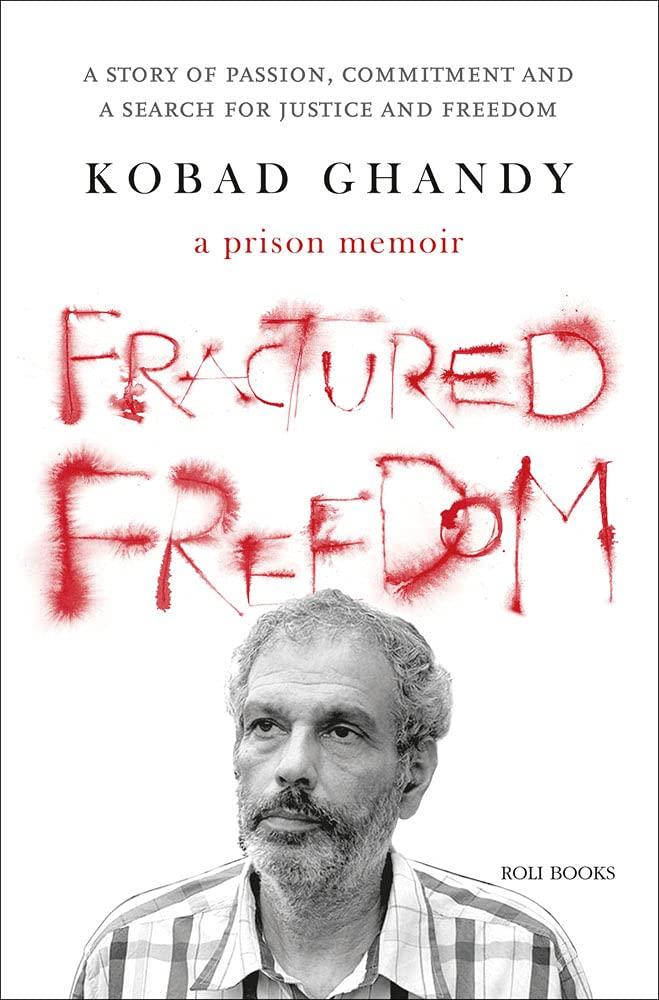Quick Reads
Kobad Ghandy: A Fractured Life
Fractured Freedom is a story of passion, love, commitment and a search for justice and freedom.

Prakash Waghmare, Satish Gore | Do you know Kobad Gandhy? If not, you would certainly know other Ghandys. Of course, WhatsApp University must have provided you with a lot of information about them.
Recently, Kobad Ghandy was in the news for his book ‘Fractured Freedom’. The book is a prison memoir. It is a story of passion, love, commitment and a search for justice and freedom. Although, freedom was denied to him and justice was delayed for a decade.
Kobad Ghandy is a social and political activist who studied in Europe. During his days in England, he suffered from an identity crisis. The conditions in England made him realise his self-identity and he revolted in England against the British policy of consuming Indians in the colonial period. In England, for anti-British activities, he was put behind bars for three months.
After reading Karl Marx and other left revolutionaries and their treatises, the young Kobad Ghandy understood the socio-political and economic condition of the downtrodden people in the world and particularly in India. This made him take a life-changing decision. He left Europe for India. He left the better life and opportunities for his people back home. He was pursuing education in the commercial sector at the time.
However, he returned to India to serve people from lower castes and classes. He joined many social reform movements and started working for the betterment of the poor. He participated in many strikes and agitations against oppressive government policies. In this fight, he had a good support from his family and friends. In the late 80s, ‘Dalit Panther' was at its peak. He participated in many of their activities. Dalit Panther provided him with the deepest and literary understanding of caste-based atrocities. He tried to build the bridge between the left and Ambedkarite movements. As it were to turn out, nothing worked. They fell apart.
Meanwhile, his love life with Anu, a student activist in Bombay (now Mumbai), flourished like a red rose. When the nation was engulfed by hatred, the couple found hope in love. Love finds a way for itself. It is, indeed, love that can lead us to the final destination. The destination is where we want equality before everything and not just a law.

Kobad and Anu Ghandy. Credit: Roli Books
Anu and Kobad had a lot in common. Both of them were deeply influenced by the left ideology. They married and together decided to serve the poorest of the poor.
The love was influentially flourished and tied by the left ideology. And hence, they continued with their activism under any circumstances. The ideology was a sacred knot for them. Furthermore, they went to Nagpur and many other tribal regions to reform the lives of the destitute people.
It must be proudly noted that Anu and Kobad Ghandy tossed their better life for the betterment of the poor. Ghandy worked as a full-time social activist for almost 40 years. We may fancily call it ‘the Four Decades’. However, the 40 years were not a cakewalk for them. During this journey, his beloved Anu died due to ill health. After her death, life was not destined to be easier.
In 2009, Kobad Ghandy was arrested under UAPA. It is a Non-bail-able act. The UAPA in its full form goes Unlawful Activities Prevention Act. The word ‘prevention’ is in the bracket. One must not forget it. It is said that he was arrested for his alleged connection with the banned Communist Party of India (Maoist).
He was imprisoned in various Indian jails for 10 years. Ghandy writes, “a prison is a microcosm that represents the state of the rule of law, the condition of a people and much more. Living conditions differed drastically from jail to jail; those of the South, where I spent about two years appeared more humane… after witnessing the law-based structures of the jails in Andhra Pradesh/Telangana, Jharkhand seemed to resemble a Congo-type country, where no rules applied.”
It is said that he was tortured by the police and the judicial system. In the book, Fractured Freedom, he maintained that he was tortured for seven years in the ‘Tihar jail.’ He writes, “No place is as bad as Tihar, a jail that is ‘structured to crush you’. Mulaqaat is difficult to arrange for those lodged in Tihar. One needs the jail superintendent’s permission even to get a pen and paper. Access to documents is not free, which often leads to incomplete legal representation. On top of this, Tihar is a vegetarian prison.”
Despite facing health issues, he was still not allowed better treatment. He was an accused prisoner, not a convicted prisoner. However, he was treated badly as a criminal. Despite being a senior citizen, he was denied his lawful right to receive the required medical treatment. The poor condition of food, health, medical treatment and the inhumane behaviour of the system mentally tortured the social activist in Kobad Ghandy.

In the worst of times, he received support from his family and friends who equally fought to free Kobad from the framed accusations. Finally, in 2019, Kobad Ghandy was released from all the charges against him after 10 years. The trial took 10 years of his life. According to him, the system squeezed life out of him and took away 15 percent of his total life span.
It was after 2019 that Kobad penned his painful, fractured and timely autobiography. The autobiography titled ‘Fractured Freedom’ symbolically and aptly imprints the journey of a spirit who noted the fractures in the socio-political fabrics of the nation. The Marathi version of the book has been published by Lokvangmay Griha, a noted Marathi Publication House.
The Government of Maharashtra announces various literary awards every year. Of and about the process, most of us may agree with or disagree with. Interestingly, an award in the translation category, for the year 2021, was declared for the translation of Kobad Ghandy’s Fractured Freedom. These prestigious awards are called ‘The Yashwantrao Chavan State Literary Awards’.
However, for the first time in the history of this award, it was, all at once, withdrawn for Ghandy’s assumed connection with Maoists. This was something that caused a massive uproar in the literary and political spheres. Although the move was not at all surprising, it showed the fractures in the award system and the lack of freedom. Sadly, the academia was in a deep (slavish) sleep. Nowhere have any students’ union made any point on the same. Nobody raised a red flag.
Kobad Ghandy, is a man who dedicated his entire life to a cause, for the poor, was tortured by the police and was denied timely justice by the system. As if the torture was the reward he deserved for a decade in jail.
Then, shouldn’t one assume that Kobad Ghandy was jailed for his unconditional service to the poor and tribal of this country?






